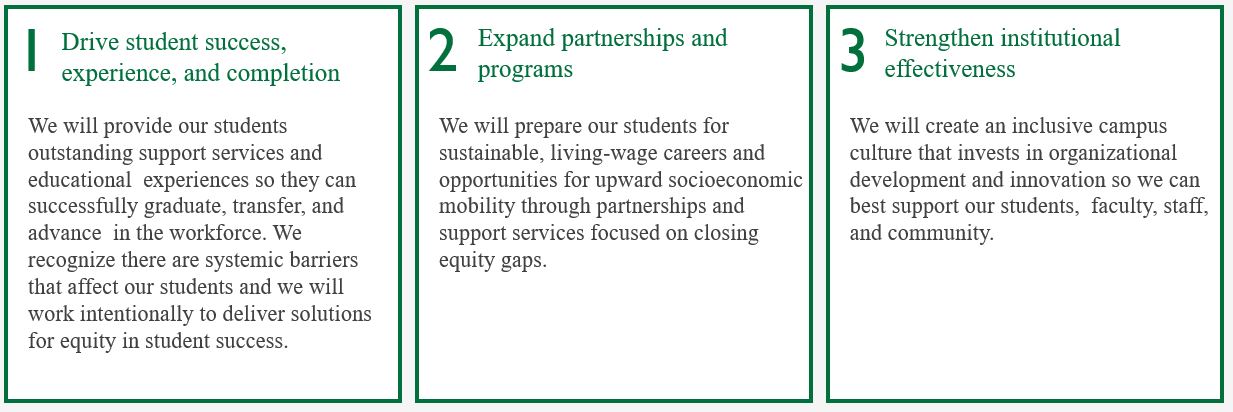Employee Performance Evaluation

Employee performance evaluations play a pivotal role in fostering a culture of growth,
accountability, and motivation within an organization. By providing structured feedback
on an employee's strengths, areas for improvement, and alignment with organizational
goals, performance evaluations offer a valuable opportunity for dialogue and reflection.
This process not only recognizes individual contributions but also promotes transparency
and fairness in assessing performance. When conducted effectively, performance evaluations
demonstrate a commitment to employee development and success, empowering individuals
to set and achieve meaningful goals. They contribute to a positive organizational
culture by fostering open communication, trust, and a sense of appreciation among
team members.
By acknowledging achievements and providing constructive feedback, performance reviews
inspire continuous improvement, boost morale, and cultivate a motivated workforce
dedicated to achieving collective objectives.
Goal 3 of CCRI's Strategic Plan is to strengthen institutional effectiveness. One way we hope to achieve this is
through strengthening professional development at the individual and organizational
levels. To realize this, we are committed to providing and receiving valuable feedback,
professional development, cross-sharing information, and annual performance reviews.
Last year, we achieved our goal of ensuring 100% of employees received a performance review! In early 2025, the division of IEHROD conducted a survey to gain feedback to facilitate improvements to the process. Click here to see the results.
For more information and instructions, review the below information.
Annual Employee Performance Evaluation Process
Process
The college is again using DocuSign to administer the 2025 performance evaluation
process. All employees have been set up with accounts in DocuSign to access, view
and sign documents sent to them for electronic signature. Evaluations will be delivered
to all supervisors on Monday, May 5 and will be due on Thursday, July 31.
DocuSign is accessible in the "For Employees" tab in MyCCRI. Supervisors and employees
will also receive emails enabling them to access their evaluation(s).
Anyone who wishes to participate in an overview or has questions related to the process,
may attend in-person Drop-in sessions that will take place in Warwick with a virtual
option offered via WebEx.
Drop-in session dates:
-
Thursday, May 8, 10:00-11:30, Lincoln, Rm 1332 and Virtually
-
Monday, June 9, 10:00-11:30, Warwick, Rm 4104 and Virtually
-
Tuesday, July 22, 10:00-11:30, Warwick, Rm 4104 and Virtually
Supervisors, remember that annual evaluations are an important part of an employee's
professional development. Evaluations are to be conducted via real-time conversation
between supervisors and their direct reports so please be sure to schedule meetings,
in-person or virtually to discuss each employee's performance and share relevant feedback.
Accessing and using DocuSign
Probationary Review Processes
ESPA Employees
All original appointments and promotional appointments shall be considered probationary
for the first one hundred thirty (130) days worked of their continuous employment.
During this probationary period, the probationary employee will be evaluated by their
immediate supervisor every two (2) months.
The employee and the supervisor shall discuss the employee’s performance and shall
be notified in writing of the evaluation after each evaluation is made, and if appropriate,
the supervisor shall offer constructive criticism to enable the employee to improve
their performance. The employee has the right to attach appropriate comments to any
evaluation.
(ESPA CBA, Article XIX, A.1 and A.2 – effective July 1, 2021 through June 30, 2024).
PSA Employees
New staff members shall be considered as probationary members for the first twelve
(12) months of their continuous employment. During this time, the employee shall receive
quarterly performance reviews which will include one of the following assessments:
(1) Making Satisfactory Progress
(2) Needs Improvement
(3) Employment in Jeopardy.
(PSA CBA, Article VII, 7.5, 7.5(A) – effective July 1, 2022 through June 30, 2025).
CPE Employees
All new employees shall serve a probationary period of one year and shall be evaluated
by their supervisor in writing at least twice during this period.
All employees who are promoted shall serve a probationary period of six months and
shall be evaluated by their supervisor in writing during this period.
(RICPE Personnel Policy Manual, 2.06 - last revised July 2013).
Helpful Information for Supervisors
Staying on track
To assist supervisors and employees with staying on top of their required work. You
may find it helpful to head to the Faculty/Staff Calendar to see important deadlines
and even add reminders to your calendar.
Performance Evaluation Dates
Conducting an effective performance evaluation
When conducting performance evaluations, managers should review their employees' job descriptions and consider several key factors to ensure fairness, effectiveness, and employee development. Here are some considerations:
-
Preparation and Documentation: Managers should thoroughly prepare for performance reviews by gathering relevant data and documentation related to the employee's performance throughout the review period. This may include quantitative metrics, qualitative feedback, and specific examples of accomplishments or areas for improvement. Adequate preparation ensures that the review is based on concrete evidence rather than subjective impressions.
-
Clear Communication: Effective communication is crucial during performance reviews. Managers should provide clear expectations and feedback, ensuring that employees understand their strengths, areas for improvement, and goals for the future. Additionally, managers should encourage open dialogue, allowing employees to express their perspectives and concerns.
-
Goal Setting and Development Planning: Performance reviews offer an opportunity to set goals and create development plans tailored to each employee's needs and career aspirations. Managers should collaborate with employees to establish SMART (Specific, Measurable, Achievable, Relevant, Time-bound) goals that align with organizational objectives and support individual growth. Development plans may include training opportunities, stretch assignments, or mentorship arrangements.
-
Recognition and Motivation: Recognizing and acknowledging employee contributions is essential for morale and motivation. Managers should use performance reviews as an opportunity to celebrate achievements and highlight areas where employees have excelled. Positive reinforcement reinforces desired behaviors and encourages continued effort and engagement.
-
Fairness and Consistency: Performance reviews should be conducted with fairness and consistency across the organization. Managers should adhere to established evaluation criteria and avoid bias or favoritism when assessing employee performance. Consistent evaluation practices help maintain trust and credibility in the performance management process.
By prioritizing these considerations, managers can conduct performance reviews that promote employee development, foster a culture of transparency and accountability, and contribute to overall organizational success.
Helpful Information for Employees
Considerations for Self Evaluation
Self-evaluations are an opportunity to reflect upon your work over the past year. Take this time review the 2025 Annual Employee Evaluation Form and consider your strengths and areas of potential growth. Celebrate your accomplishments and identify any plans for improvement.
Think about your professional development. What would you like to accomplish in the
upcoming year and how can your manager support you? Are there trainings in which you'd
like to participate? Take this time to identify any opportunities and with your manager,
develop a plan to achieve your goals.
Finally, consider how your work helps CCRI achieve its strategic plan. Think about how your day-to-day activities link to the goals, strategies and tactics
of the plan and help drive student success, experience, and completion; expand partnerships
and programs; and/or strengthen institutional effectiveness.

